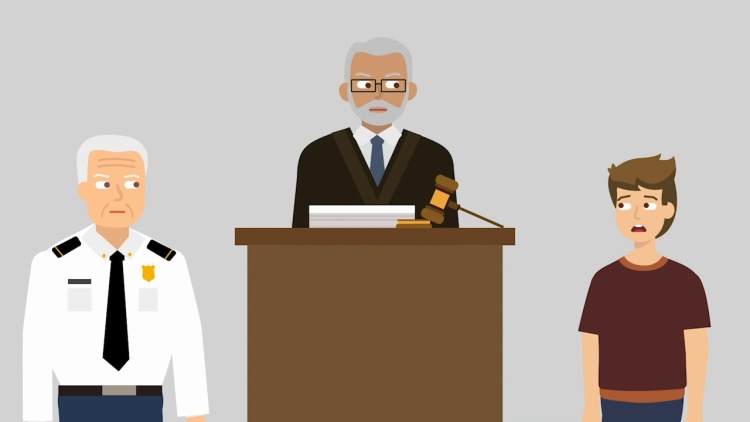Fare v. Michael C.
United States Supreme Court
442 U.S. 707 (1979)
- Written by Mary Katherine Cunningham, JD
Facts
After receiving information implicating Michael C. (defendant) in a murder, the police brought Michael in for questioning. At the time, Michael was a 16-year-old on probation. The police began the interrogation by informing Michael of his rights under Miranda v. Arizona, 384 U.S. 436 (1966). Michael asked whether he could have his probation officer present during the interrogation, but the police officers refused to call his parole officer. Michael subsequently incriminated himself in the interrogation, and the State of California (plaintiff) charged Michael with murder. At trial, Michael moved to suppress the statements made during the interrogation. The trial court denied the motion, and Michael appealed to the California Supreme Court. The California Supreme Court reversed, holding that because the probation officer would act to protect Michael’s Fifth Amendment rights, the police’s refusal to call the probation officer violated Miranda. The state appealed to the United States Supreme Court.
Rule of Law
Issue
Holding and Reasoning (Blackmun, J.)
Dissent (Powell, J.)
Dissent (Marshall, J.)
What to do next…
Here's why 907,000 law students have relied on our case briefs:
- Written by law professors and practitioners, not other law students. 47,100 briefs, keyed to 996 casebooks. Top-notch customer support.
- The right amount of information, includes the facts, issues, rule of law, holding and reasoning, and any concurrences and dissents.
- Access in your classes, works on your mobile and tablet. Massive library of related video lessons and high quality multiple-choice questions.
- Easy to use, uniform format for every case brief. Written in plain English, not in legalese. Our briefs summarize and simplify; they don’t just repeat the court’s language.





